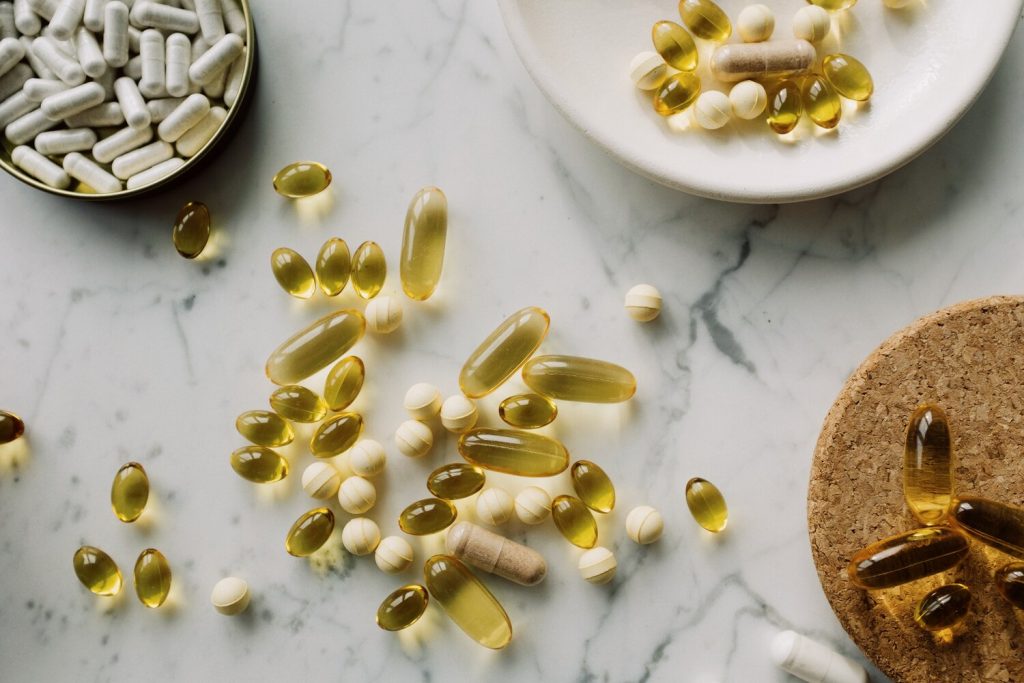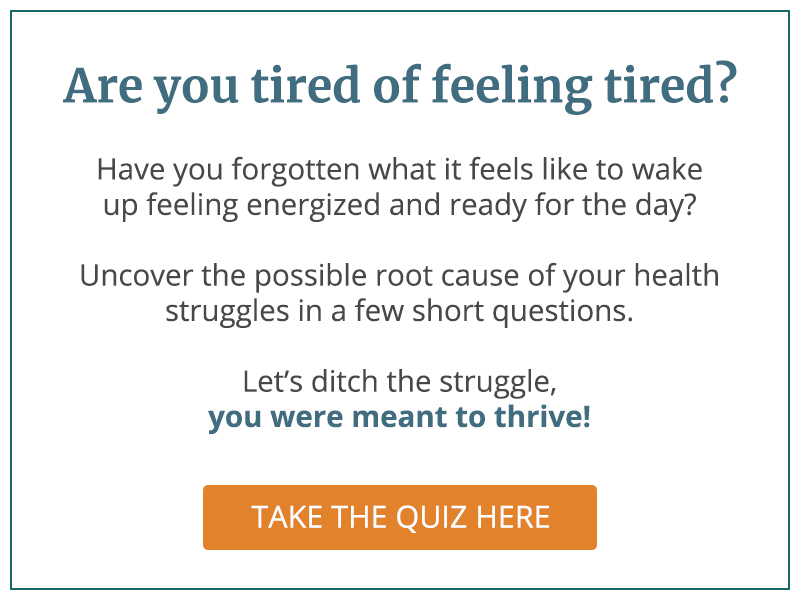There’s a lot of information and misinformation floating around right now about the immune system.
Some people are saying we can “boost” immunity.
Others are crying foul, saying that’s a terrible idea and we shouldn’t even try.
But here’s the thing: When doctors are suggesting that you “boost” your immune system, what they really mean is that you should be supporting or modulating your immune system. I feel like this should be rather obvious, but the goal here is not to create an abnormal immune response. We are not suggesting that you should try to create an autoimmune disease in your body.
The problem lies in the fact that so many people do not have a strong baseline immune response. Their gut microbiome (where up to 70% of your immune system is thought to reside) is weak. Their diets are poor, so they aren’t getting enough of the critical nutrients needed to mount a meaningful attack on a potential pathogen. They aren’t getting enough sunlight regularly to produce healthy stores of vitamin D.
Thus, the recommendations to boost, support, modulate, (whatever word you prefer) the immune system.
One of the quickest ways to do that — because we’re dealing with an issue *now* and we don’t have time for some of the more effective, longer-term strategies to build up immunity, is to supplement.
In this article, I’m going to go over some of my recommendations for supplementation in the current climate, if you can get a hold of them.
Please understand that because this virus is “novel” that a couple of things are at play:
- No one has encountered this germ before, so no one has immunity to it. It’s what makes it dangerous and unpredictable. This is why building up our immune systems NOW is the best defense we have.
- We don’t have a whole lot of reliable data to work with. We can make assumptions based on our experiences with other coronaviruses, but no one can say for sure that any of these measures will actually work as a preventative measure or as a treatment. I can only make recommendations based on my years of study and clinical practice treating thousands of patients over the years with similar diseases.
Supplements and COVID-19
Again, this list of recommendations is likely safe to use both prior to, and during, a COVID-19 infection. However, no research studies have been published to date on whether or not there is a benefit to taking these during COVID-19 infection.
My go-to immune supporting tool kit is as follows:
- Zinc — this nutrient is critical for immune health, and most people don’t get enough of it in their diet. It helps kill pathogenic viruses and bacteria. Typical dosing for zinc is 15 mg – 30 mg daily. Lozenges are preferred as they can provide protective effects to the upper respiratory tract.
- Vitamin C — also known as ascorbic acid. This vitamin reduces cellular inflammation. It’s a powerful antioxidant and antihistamine. It’s an immune support superstar for a reason. In clinical studies, it has been shown to decrease the incidence and duration of respiratory infections such as the common cold. If you see vitamin C that’s labeled as liposomal, this means it’s fat soluble so you probably can take a smaller dose. Your body doesn’t make vitamin C, you have to ingest it. And, what your body can’t use, it will excrete in your urine, so it’s hard to take too much. Typical doses range from 500 mg – 1000 mg daily or 2000 mg – 3000 mg daily if respiratory symptoms are present.
- Melatonin — an essential hormone for sleep, melatonin is also an important regulator of the immune response. Melatonin has also been shown in clinical trials to help reduce lung injury during viral infections. Additionally, if you’re having trouble sleeping, melatonin can help you get that shut-eye you desperately need and bolster immunity. It’s recommended to take 1 mg to 3 mg each night.
- Vitamin D — the average fair-skinned person makes about 10,000 international units of vitamin D in 30 minutes out in the sun. Be sure to soak up those rays, but avoid the heat of the middle of the day so you don’t burn. Supplementation of vitamin D is crucial if you can’t get out into the sunlight or if you live where it’s not very sunny right now. The recommended dose of Vitamin D depends on your vitamin D status and can range from 500 iu to 2000 iu daily. During an acute infection with COVID-19, it is not recommended to take higher doses of vitamin D.
- Quercetin — this is a great supplement that’s a little less well known, so it may be a little easier to come by right now. It’s a natural antihistamine, antioxidant, reduces inflammation and supports the immune response. It’s found abundantly in onions, capers, apples, grapes, and leafy greens. Recommended dose is between 500 – 1000 mg daily.
- Astragalus membranaceus — this has been used for centuries to help boost immunity. Again, it may be a little bit easier to find since it’s not as mainstream as vitamins C and D. In addition to helping give your immune system a helping hand, it can also increase energy and may even help treat diabetes and high blood pressure. The recommended dose is between 30 – 60 grams per day.
- Full mycelium mushroom extracts — medicinal mushrooms are a superfood for immunity. These are not the same mushrooms you find at the grocery store or on a salad. Medicinal mushrooms include Reishi, Turkey Tail and Maitake mushrooms. Be sure the supplement contains organic mycelium and full spectrum constituents. Taking a high-quality medicinal mushroom extract might be your best bet if you’re looking to improve immunity quickly.
- Vitamin A — vitamin A is an anti-inflammatory vitamin. It is critical in helping the immune system function properly. It’s another super important vitamin that most of us don’t get enough of in our diets. Food sources include eggs and orange fruits and veggies. If you’re not eating sweet potatoes, carrots, and tons of spinach and broccoli regularly, a supplement might be in order. Vitamin A can be taken up to 25,000 iu per day.
Supplements I’d recommend that you avoid if you have symptoms of respiratory illness as they potentially could create an exaggerated immune response:
- High doses of vitamin D
- Sambucas Nigra (Elderberry)
- Echinacea Angustifolia
- Echinacea Purpurea
Other Important Ways to Support Your Body and Immune System
Aside from supplementation, there are other things you can do to help build up your natural immune response.
Probably the most effective way? Start eating better. Load up on plant-based, fiber-rich, whole foods. The Mediterranean diet is a great place to start for direction, as it’s actually been tied to immune health. Fill half your plate with vegetables, add in some beans or legumes, drizzle with olive oil and you’re set. Occasionally indulge in some chicken or wild-caught fatty fish. It’s a foolproof way to start increasing the strength and diversity of your microbiome, where your immune system starts.
Sleep is also critical for immune health. If you haven’t been getting those 7-9 hours of sleep per night, now is the time to make it a priority. If you’re not well-rested, you can’t be at your best mentally or physically. And your immune system is not in prime shape to fight off invaders. Go to bed as early as you can (ideally 10 PM or earlier) and sleep until you’re ready to wake up.
Get your stress levels under control. I know this may be easier said than done right now, but try disconnecting from your phone for a bit. Constantly checking updates from social media and the news is not helping anyone’s stress subside. Stress weakens your immune response.
Have a little extra time on your hands right now? It’s the perfect time to finally start that at-home workout challenge you’ve been eyeing (a lot of them are free, too). Exercise does wonders for stress levels.
Feeling restless? Now’s the best time to start a meditation practice — trust me, once you develop this habit, you won’t know how you lived without it and mindfulness has been proven to increase immunity!
We Are Here to Help
Our current understanding of COVID-19 is changing rapidly. Information is becoming available quickly — and my team and I are on the pulse of this medical emergency.
My integrative recommendations here are based on prior research and studies on infectious agents and with consideration of our current understanding of the underlying mechanisms of the COVID-19 infection. While there are no clinically evidence-based integrative prevention or treatment strategies for COVID-19 infection at this time, it doesn’t mean we should just give up hope.
We have the power to influence our immune system through the choices we make. And I hope that you feel empowered to take control of your health at all times, not just now when we are experiencing a crisis. As this current situation has revealed, so many who are at a higher risk of developing complications from this virus are those with underlying, pre-existing conditions.
Now may be your time to get serious about healing those underlying health problems that you’ve been managing and not resolving.
As always, my team and I are here for you — and if you have concerns about your immune system, COVID-19, or any other health issues you’re ready to tackle, schedule a call with me HERE.
References
“Zinc in Human Health: Effect of Zinc on Immune … – NCBI – NIH.” 3 Apr. 2008, https://www.ncbi.nlm.nih.gov/pmc/articles/PMC2277319/.
“Vitamin C and Immune Function. – NCBI.” 3 Nov. 2017,
https://www.ncbi.nlm.nih.gov/pubmed/29099763.
“Melatonin, immune function and aging – NCBI.” 29 Nov. 2005, https://www.ncbi.nlm.nih.gov/pmc/articles/PMC1325257/.
“Vitamin D and the Immune System – NCBI ….”
https://www.ncbi.nlm.nih.gov/pmc/articles/PMC3166406/.
“Quercetin, Inflammation and Immunity – NCBI.” 15 Mar. 2016, https://www.ncbi.nlm.nih.gov/pmc/articles/PMC4808895/.
“Astragalus membranaceus: A Review of its Protection … – NCBI.” https://www.ncbi.nlm.nih.gov/pubmed/26916911.
“Immune Modulation From Five Major Mushrooms … – NCBI.” https://www.ncbi.nlm.nih.gov/pmc/articles/PMC4684115/.
“Role of Vitamin A in the Immune System – NCBI – NIH.” 6 Sep. 2018, https://www.ncbi.nlm.nih.gov/pmc/articles/PMC6162863/.
“The Immune Protective Effect of the Mediterranean Diet … – NCBI.” https://www.ncbi.nlm.nih.gov/pmc/articles/PMC4443792/.
“Sleep and immune function – NCBI.” 10 Nov. 2011,
https://www.ncbi.nlm.nih.gov/pmc/articles/PMC3256323/.
“Mindfulness meditation and the immune system: a … – NCBI.” 21 Jan. 2016, https://www.ncbi.nlm.nih.gov/pmc/articles/PMC4940234/.



